Family Matters: Country Music’s High Valley & NFL’s Trent Dilfer
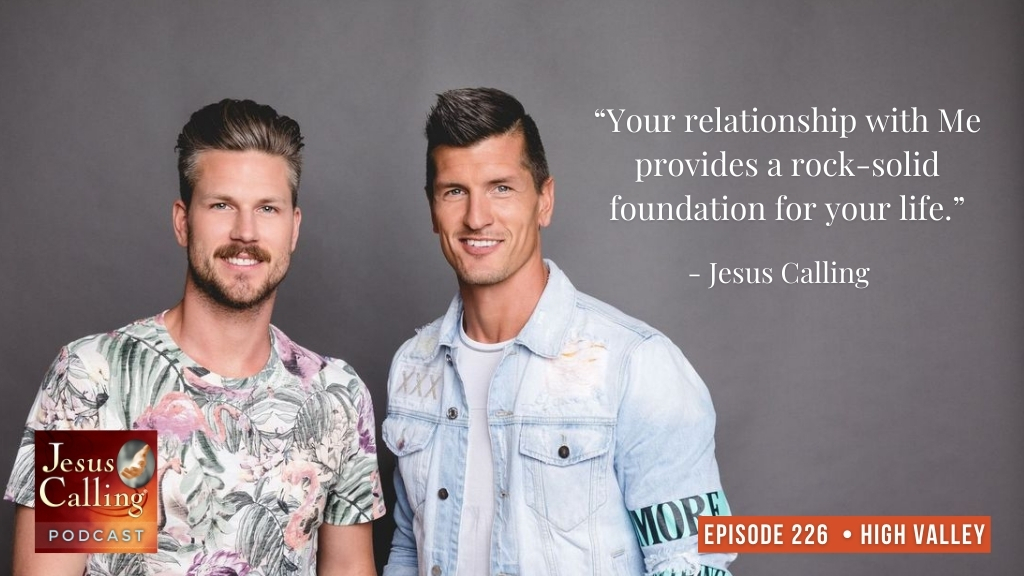
Brad Rempel: You’ve got to try and see this whole life as a long-term deal and not one moment. It’s so hard to not. You know, we literally preach—I think I probably wrote it in a few songs to live in the moment, but technically you don’t want to live too much in the moment. You want to realize that bad moments can disappear in the grand scheme of things. But we try and soak up all the good ones, for sure.
Family Matters: Country Music’s High Valley & NFL’s Trent Dilfer – Episode #226
Narrator: Welcome to the Jesus Calling Podcast. One of the greatest blessings we could ever ask for is having a family—whether it’s the family we’re born into or the family we choose. Our guests this week are Brad and Curtis Rempel of the country music group High Valley, along with Super Bowl-winning quarterback and high school football coach Trent Dilfer. And they each share stories that show the life-saving power of cultivating deep connections with people who can hold us at our lowest, and cheer with us at our highest moments.
High Valley is a Canadian country music duo who originally hail from Canada. Brothers Brad and Curtis Rempel started singing at a very young age with their family and with their church and followed their love of music along with their dreams all the way to Nashville. As they began touring and finding success in the country music world, the brothers agreed they always wanted their music to be something that families could enjoy together, just as they enjoyed music as a family growing up together. This commitment to put family first has always been a primary motivation–even to the point that the brothers made a goal to give up heavy touring to spend more time with their kids.

Brad Rempel: We’re High Valley.
Curtis Rempel: Yes, we sure are. My name is Curtis Rempel. I’ve been doing High Valley full time for fifteen years.
Brad: And I’ve been doing it for like twenty-three, twenty-four years.
Curtis: Our hometown is La Crête, Alberta. It’s—what is it? 2500 miles northwest of here. We were actually twenty miles from the street, out in the country on a grain farm.
Brad: And the whole next-door-neighbor thing is not a thing everybody grows up on. I would say most people have a thousand acres or more. If you’re a farmer, a lot of them have a couple thousand acres or more. You drive out of your farm in a vehicle, you don’t just walk outside and see what your neighbor is up to, and you don’t walk to your neighbor’s house.
Curtis: I remember there were maybe a couple days of the year when it was just cold enough and the wind was blowing the perfect direction, you could hear your neighbors’ voices maybe faintly.
Brad: Yeah. So it’s pretty quiet out there.
Curtis: But our childhood, our whole background is crazy, our mom and dad, and I know this because of trying to become an American immigrant and doing all the paperwork. Our mom and dad’s birth certificates, they’re both Mexican, technically. They’re both born and raised as Old Order Mennonite, kind of like the Amish horse and buggy, you know, electricity. They lived down in Mexico, in the city of Chihuahua, and they end up moving to Canada. We’re born in Canada. Now we live down in Nashville. It’s just kind of a crazy world. I grew up speaking German, our whole hometown and our family. Everybody speaks German.
The First Musical Moments
Curtis: Our family was really into the harmonies. I’m the youngest of six kids. Our three older sisters, they’re crazy about harmonies. And so that was a big thing in church, but it was like a really highlighted thing just in our family.
Brad: Yeah, and they all have so many kids. Our one sister has seven kids, and one has five kids, and they can sing.
Curtis: Cindy has eight kids—eight.
Brad: Sorry, I’m going to be on a losing track. Yeah. If Mom invites us all over for dinner, if she says, “Hey kids, come over,” if we’re all in town, which happens once every three years, there’d be like forty people showing up.
Two years before Curtis was born, when I was four years old, our family recorded our first album and it was a gospel album in our church. And by album I mean the sound guy in the church hit Record on a tape player. And we sang ten songs in a row, one pass each, and I got two songs on that record. One was called “Self-control,” but I couldn’t say control. So it kind of [sounds] like self cwon-twol. And the other one was called “He’s a Great Big God,” and that’s how it all started.
Curtis: Both hits.
Brad: Huge, huge hit. Oh, for sure.
So growing up, they had tons of records, and Ricky Skaggs won, as far as which record would actually stay upstairs in the living room by the record player. Our town didn’t have radio, and we didn’t own a TV. And I was a teenager when—Curtis, obviously, was younger—but it was just kind of records for the first few years.
Curtis: The first five CDs I bought were all from Skaggs Family Records.com. So I bought two Skaggs records, and then three records of bluegrass acts that he signed.
Brad: We didn’t know about anything different. We didn’t have pop culture to tell us who was cool.
We’d spent many years now telling people what we didn’t have. We grew up without radio, without TV, without, without, without. And we wanted to write a song embracing what we grew up with as opposed to once again going down that other road. So I think the best way to summarize literally our childhood and “what we had and what we’re so thankful for” is the line that Ricky Skaggs says on the vinyl King James on the Bible.
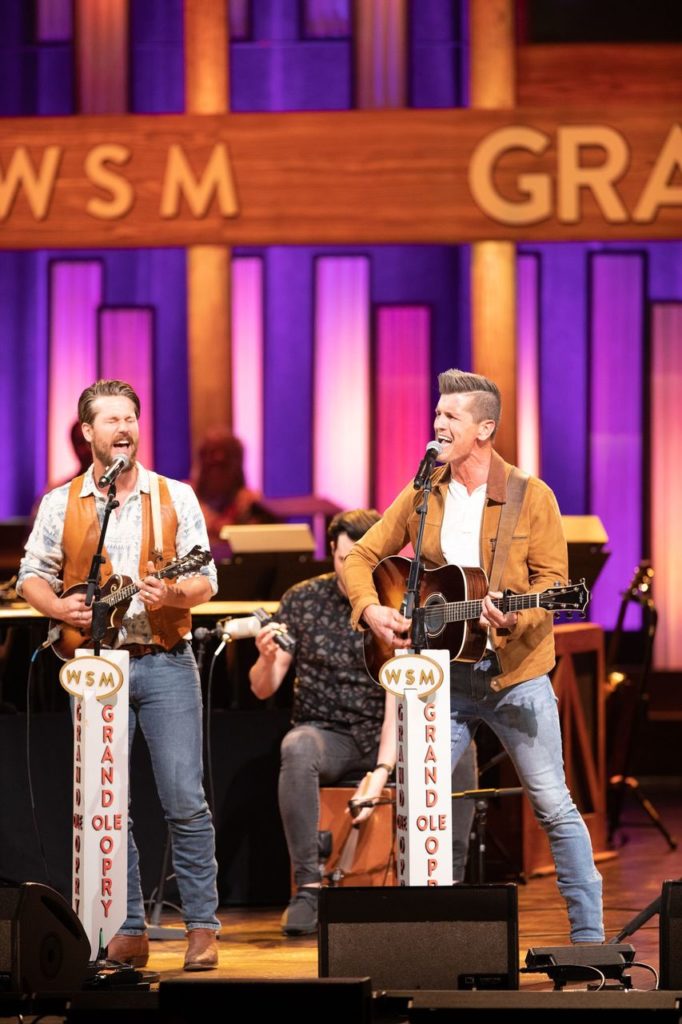
I’ve always remembered that when I was twelve, our dad literally could have said, “I want to use this money to buy more farmland,” to whatever his dreams were, right? But instead, he took his money and gambled it big time on our dreams. So I’ve made it a dead serious effort when our kids were born. Straight up, I wasn’t the best dad in the world. I was very focused on our career and my dreams personally, and I regret it now because now I look back and see my wife had to work so hard, you know, and I was out trying to make High Valley the most famous country band in the world.
So our mom and dad drove to Nashville for their honeymoon, which is super crazy to think thirty years later they come back, they’re huge Ricky Skaggs fans, and they get to hear their boys play the Grand Ole Opry. Ricky Skaggs introduces us. And it’s all this full circle moment.
Putting Family First
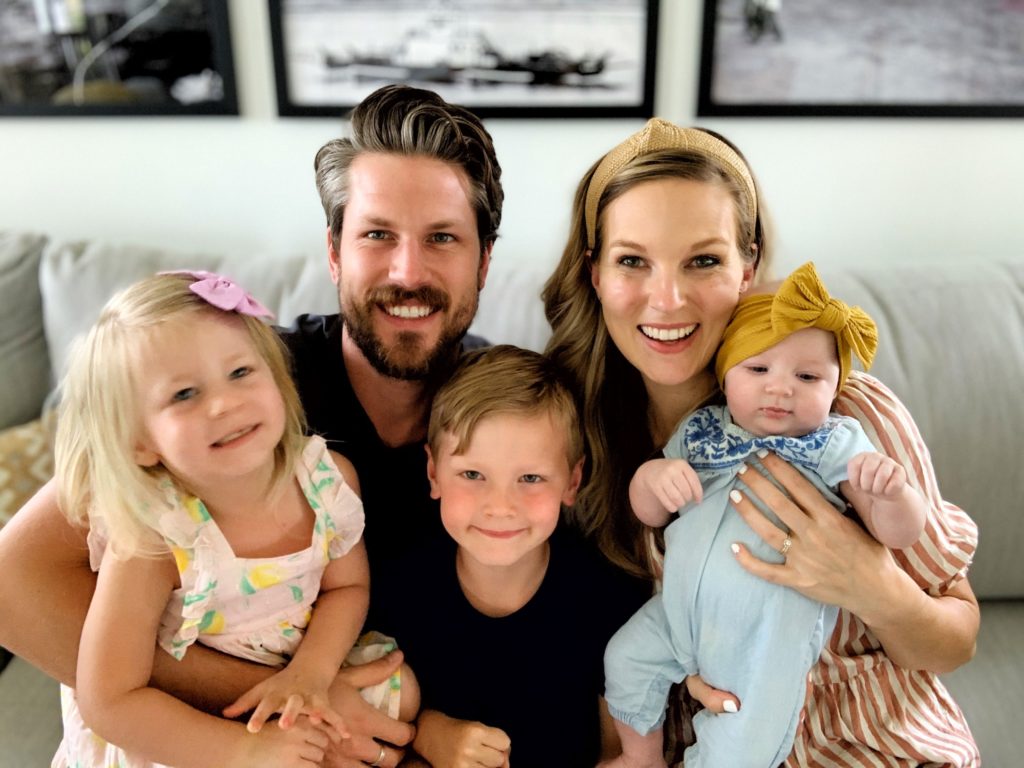
Brad: Since we’ve had, like, the age of responsibility to feel like God had a purpose for what we were doing, our biggest goal has been, Can we bring families together? You can go to any restaurant in the world, walk in the door, and see about 100 families that are all not talking to each other while they stare at different devices.
And our goal has been, Is there a way that we can bring families together and always, “Is High Valley in town?” Yeah. “Because there’s families everywhere downtown, High Valley must be somewhere.” And not even just at the shows, listening to the records too, you know, it’s something that they can have on in the car. And you don’t have to skip any songs. You don’t have to skip any verses, it’s all good. And when families come through an autograph line and the teenage girl walks away and the mom quickly tries to whisper without embarrassing her daughter, “Thank you for making music that I can listen to in the car with my kids.” You know, that’s what brings me so much joy.
Curtis: I’m always trying to figure out how to be dad. I mean, I’ve been a dad for almost seven years, and I’m still just trying to always pray that God will keep me humble, and if I want my kids to own their own mistakes, I’ve got to own mine.
“I’ve been a dad for almost seven years, and I’m still just trying to always pray that God will keep me humble, and if I want my kids to own their own mistakes, I’ve got to own mine.” – Curtis Rempel
And I’m always asking God to keep me humble, I mean, I feel all the time as a dad. I do. But I’ve learned to develop the ability to tell my son what I feel, and I say—my son, I have a daughter who’s three, and a daughter that’s almost one. But my son is that age where he’s aware, he’s watching my behavior, and my wife’s behavior, and we pray as a family all the time that God will work in our hearts, help us to be servants of each other, and be humble. And I’m choking up, because it matters to me. I want my son to see humility in me, and it’s hard to be humble.
“We pray as a family all the time that God will work in our hearts, help us to be servants of each other, and be humble.” – Curtis Rempel
Brad: I really have made it a point in the last probably six or seven years, whatever my kids’ dreams are, when they hit twelve, that mine don’t matter anymore. Not that I don’t want to do it. God has called us to do it, but it’s all about them.
At the time when we set the goal, we were doing 185 shows. We were going to go down to 50 over a five-year period of time. And in the middle of all that, God said, “Oh, by the way, you’ll actually do, like, twelve in the year before.” So we got twelve in, and then the whole year shut down. But because we were on purpose, headed in that direction, I think it’d have been way less of a shock to us than a lot of other bands that were just getting a few hits together and things are rockin’, and then boom, the rug gets pulled out from under your feet. So for us, it’s a little different scenario than a lot of other people’s, a lot to be thankful for.
Creating Family Traditions
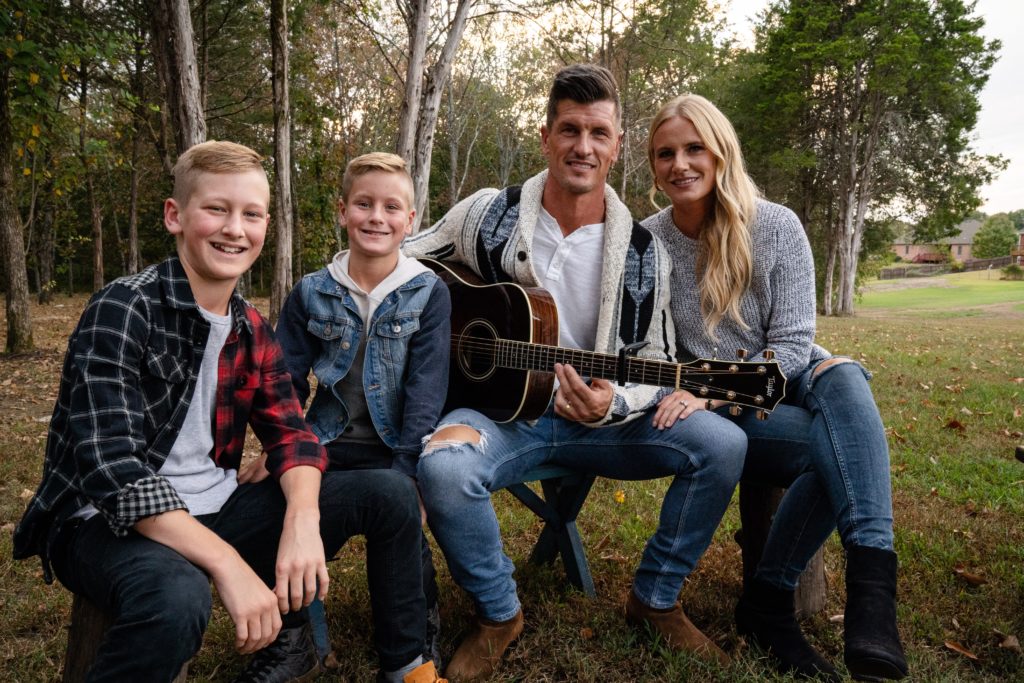
Brad: I was not raised like this, but our kids are early risers and they wake up. [My son] asks us, “Can you wake me up a little earlier tomorrow so I have more time to do stuff?” Which means he likes to play basketball before school for half an hour. So we’ll do devotions, do breakfast ,study, and then we’ll go outside and play basketball.
I always buy sports autobiographies, so I’ll read football players, a lot of hockey players. And we went to Books-A-Million. And while we were there, my wife said, “Hey, we really should find a newer, slightly older feel devotional for him,” because Drew is getting older.
So Jesus Always, there it was, sitting on the shelf in Books-A-Million. So we picked it up and bought it. And just every morning before school, sometimes Drew, my oldest, will read it. Sometimes I’ll read it. And it just puts the day in perspective. And then the school is just half a mile from here, so I drive him to school and then we pray on the way to school. And so far, he still gives me a hug and says, “I love you,” every time before I drop him off. No guarantees how much longer that’s going to last.
Curtis: It might last a long time
Brad: We suck it up while we can.
Thankfulness For The Story of God’s Writing

Brad: You do all the things that you think are the right things to do, but God has this story that He’s writing. It’s very obvious for me to look back on our story and say, “Okay, you know, a couple Mennonite dudes from the North Pole that grew up in a German house are probably not going to play the Grand Ole Opry any time soon, or get a record deal out of New York.”
”You do all the things that you think are the right things to do, but God has this story that He’s writing.” – Brad Rempel
And God just has this wild, amazing way. My one friend prays for us and he says, “I always pray that God will reveal things in your life that are so obvious that it was Him, that there’s no way you can even try to take credit for yourself. If you’re running a race, you know that God has marked it out for you.” There’s so much fulfillment in it. And, you know, “I fought the good fight. I finished the race. I’ve kept the faith,” is the anchor in that passage. But if you’re just fighting a fight and finishing a race and not keeping the faith, then, you know, maybe we would have had something else in our life that would have sort of made us feel good for a while. But I think the real joy for us is that you can see God’s hand in it.
The way that God can use just two dudes trying to make music and trying to use our gifts, and even if they’re not as good gifts as other people might have, it’s like God has this amazing way of just doing what He wants with what you’ve got.
“God has this amazing way of just doing what He wants with what you’ve got.” – Brad Rempel
Narrator: To hear High Valley’s latest single “Grew Up on That,” visit their website at highvalleymusic.com.
Stay with us for Trent Dilfer’s story after a brief message.
Many Jesus Calling readers have expressed that they have written notes in the margins of their own Jesus Calling, remembering important life moments and prayer requests. Now, there’s a new note-taking edition of Jesus Calling! It has the same great 365 devotions with full written-out scripture verses, and a new layout that leaves space for journaling and recording those inspirational thoughts and memories.
Receive your free sample of the note-takers edition of Jesus Calling.
Narrator: Super Bowl champion quarterback Trent Dilfer has three solid pillars that hold him up: family, football, and faith. Since he was a young boy, these pillars have given Trent a steady foundation during the highs and lows of his life—including when he and his wife Cassandra faced the unimaginable loss of their five-year-old son Trevin in 2003. But recently, Trent realized that God can repurpose pain into passion, and today Trent channels that passion into coaching—and parenting—the young men on his high school football team.
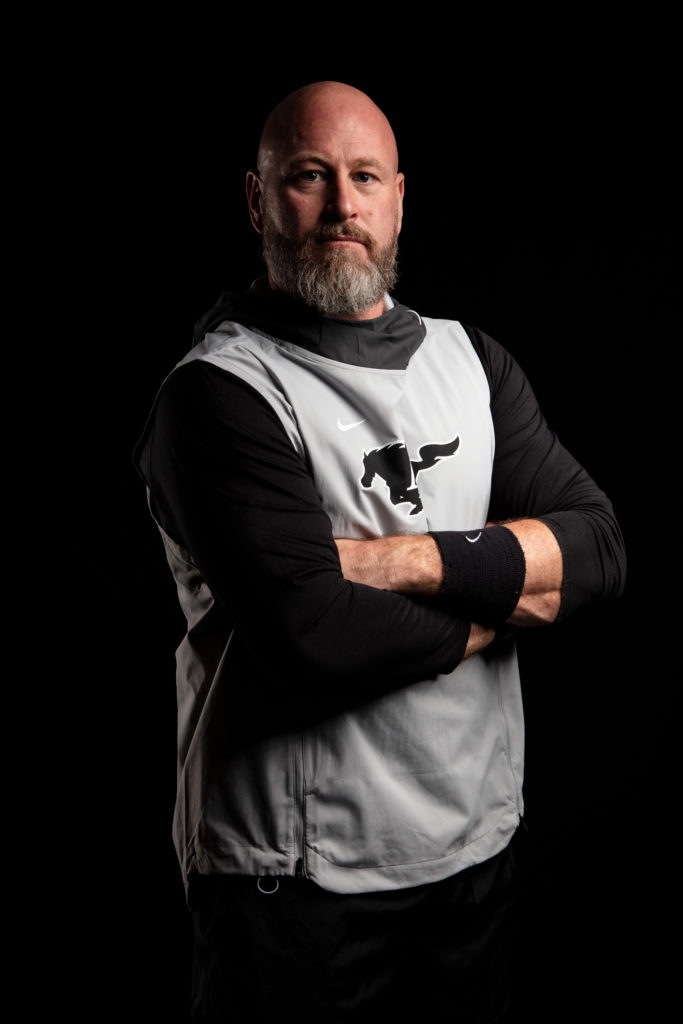
Trent Dilfer: My name is Trent Dilfer. I am forty-seven years old, father of four. Been married to my beautiful wife Cassandra for twenty-six years, spent fourteen years as a quarterback in the NFL, was lucky enough in 2000 to [go to the] Super Bowl with the Baltimore Ravens, retired in 2008, spent nine years as an analyst for ESPN. And then last year, I became the head football coach at Lipscomb Academy in Nashville, Tennessee.
Football’s Impact Goes Beyond the Goalposts
Football’s had an enormous impact on my life. I think I’m still drawn to it as passionately as ever before because I see the impact that it has. I use this term all the time, “I don’t think football is more important than anything else.” I think that’s silly to say that it’s more important than academics or the arts or politics or math or science. It’s more impactful than most things.
Football has this unique way of not just impacting the individual that’s playing it, coaching it, but especially here in the south, it impacts communities. It has a massive effect on either bringing people together or tearing them apart. It has the ability to challenge somebody that plays it, or coaches it in such a way that your true colors will come out. It can help be a change agent for so many kids who don’t have a chance to do anything else. I love that part of it. I love the importance of it, but more importantly, the impact it has on everybody it touches.
“Football has this unique way of not just impacting the individual that’s playing it, coaching it, but especially here in the south, it impacts communities.” – Trent Dilfer
I grew up in a Northern California community. It’s called Aptos, California, just south of Santa Cruz, California. My parents got divorced when I was two. My mom remarried when I was five. My dad remarried when I was ten. Really had two great fathers. My birth father was a very strong influence in my life. He passed in 2010.

My stepdad was a great influence, especially in competitive sports space. He was a football coach. My stepdad had a huge influence on me as a competitor, not just football, but looking at life through more of a competitive lens. My mom was an educator, grew up around—both of them, very academic. So the standards were very high in terms of not just academics, but performance in general. You’ve been given something, your job is to maximize it. “Too much is given, much is expected” was a common theme in my household.
So I got to start in football because my stepdad was a coach. I was always around it. So I say all the time I literally grew up on the back of a blocking sled. He was an offensive line coach. I would go to practice. I was the ball boy at the high school, at the junior college.
I actually dreamed of being a professional basketball player. Basketball is my first love. I was very good at it. It was my best sport by far. And then my stepdad, around my freshman/sophomore year said, “You know, realistically, you’re not built athletically or size wise to make basketball a long term thing. You’re probably good enough to play in college. Don’t know what level, but you’re built like a football player.” And I was not a great football player early on. I was a really good athlete playing football.
So he’s the one that kind of birthed the idea that I could go to college through football. I was a very good student. So academically, a lot of options were open for me. But he’s really the one that said, “You know, if you want to get your college paid for, it’s most likely going to be football,” and really started me down this track of dreaming of going to college play football, which obviously launched into a dream once I got to college to play in the NFL.
A Life Built on Strong Faith
You know, I’ve been asked this question a million times about how my faith has impacted my life, and I can always give the same answer. It is my life. It’s the foundation. It’s the starting point for everything. Now, do I make a million mistakes and do I lose sight of the absolute? Daily. Daily. I’d be lying to say I don’t daily lose perspective on that. But my big why is my relationship with the Lord. I can’t imagine what life would look like without that foundation, I guess, is the easier way of asking or answering it. I really don’t know where my why would come from.
“I’ve been asked this question a million times about how my faith has impacted my life, and I can always give the same answer. It is my life. It’s the foundation. It’s the starting point for everything.” – Trent Dilfer
We have probably eight different versions of Jesus Calling. It’s become the gift we give to others. All three of my daughters are very consistent with it. I have a leather-bound copy that I used to travel with. It’s been a real big part of our family.
What the Lord did through Sarah that’s so brilliant is the connectivity of her journaling. And it connects to my seventeen year old—she was doing it when she was twelve, you know—and it connects to a grumpy old man. And it connects with a grandpa. And it connects to a mom. And it connects to whoever. There’s just this connectivity in her words, her inspired words, that—I’ve done a lot of devotionals. I’ve done a lot of journals. I’ve done a lot of that in my faith walk. I’ve never done one that every time I open it, I’m like, How does she know she’s talking to me today? And it’s the perfect way. It’s not too esoteric. It’s not too big. It’s just exactly kind of the ways that I’m talking to myself that day. I find that amazing.
Jesus Calling, February 8th.
I am above all things: your problems, your pain, and the swirling events in this ever-changing world. When you behold My Face, you rise above circumstances and rest with me in heavenly realms. This is the way of Peace, living in the Light of My Presence. I guarantee that you will always have problems in this life, but they must not become your focus. When you feel yourself sinking in the sea of circumstances, say, “Help me, Jesus!” and I will draw you back to Me. If you have to say that thousands of times daily, don’t be discouraged. I know your weakness, and I meet you in that very place.
Giving A Son Back to His Heavenly Father
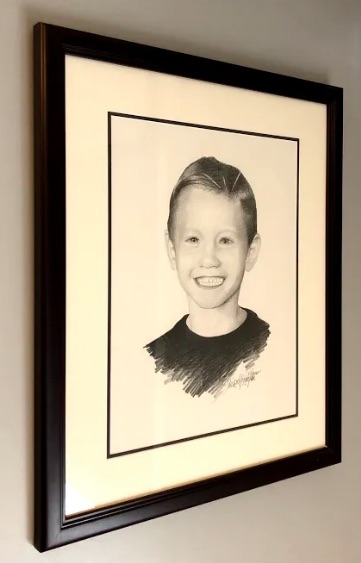
Trevin was our second [child]. He would be twenty-two, he would have just turned twenty-two in November. He died at the age of five and a half. He had a virus attack his heart.
We were down on a family vacation at Disneyland in Southern California. He got a common cold. We came back from vacation, and he just wasn’t turning the corner like our oldest had, or as he had in the past, and we took him in for a series of tests. They did some blood work and felt like there might be some hepatitis concerns. So they were going to have him stay the night in a children’s hospital in Fresno, a great children’s hospital. But we felt really good about it. I mean, my last time ever talking to him, he had kind of been hydrated and came out of this kind of listless state and was laughing and was his normal self. And it was, “Hey, bud, you’re just gonna go have some tests done. Don’t worry about it. Mom’s gonna stick around with you, I’m gonna take the girls back to the house.”
And on their way to the children’s hospital, he coded four times in the next handful hours, and they had to manually pump his heart and keep him alive. The last time, when I had taken the girls back, then rushed to the children’s hospital, I mean, literally watching these two male nurses manually keep him alive. They’d come out at one point in the middle of the night and said they’d lost him, and had him on this heart lung bypass machine waiting for a heart. And early on, it seemed like it was going to happen. Why wouldn’t he get a heart? And then you start realizing—well, this is the part that I can’t get through. For him to get a heart [meant] that another family has to lose their child.
And I’d say that was probably the greatest—and to this day, I still don’t have an answer. But that was kind of my greatest faith dilemma was, Do you beg God to save your own child’s life, knowing that that was going to cost another family their child’s life? What I’ve come to peace with is that it was time for him to be with his real Daddy.
And forty days later, we were ready to take him off life support, because at thirty-three days, no heart came up, and he got a systemic infection. And once you have a systemic infection, you’re no longer a candidate.
So we sought a lot of counsel in that week’s time, played the long game, and then finally, they weren’t going to medicate him through the pain. So we had to turn off life support. And he went on to be with the Lord.
I rest in Philippians 4:6–7. It’s been the scripture that’s not just been my bedrock scripture, but I think has allowed me to tell the story and help others that have dealt with the same things as to not be anxious about anything, but in everything through prayer and petition, with thanksgiving, present requests to God. And the peace of God, which transcends all understanding, will guard your heart and mind in Christ Jesus. It’s one thing to talk about the peace of God that transcends understanding it. But to be washed with it, not just experience it, to be washed with it—to a period of my life, now that I really had this breakthrough a few years ago, where I’m actually thankful.
And I’ve said that’s offended some people—how could you be thankful that your family lost somebody? And I said, “Because he’s better off. You know, his heavenly Daddy’s doing a much better job with him than I would have.” And that I think I only can say that because of a peace that transcends understanding, that it doesn’t make sense. If I could get it, if you’re not a follower, if you haven’t had an experience and intimacy with the Lord like I have, then you can’t comprehend that. But I’m telling you that it’s real. I still to this day can’t understand how somebody can get through how hard life is without that peace that transcends understanding.
“I still to this day can’t understand how somebody can get through how hard life is without that peace that transcends understanding.” – Trent Dilfer
Pain Repurposed Into Passion
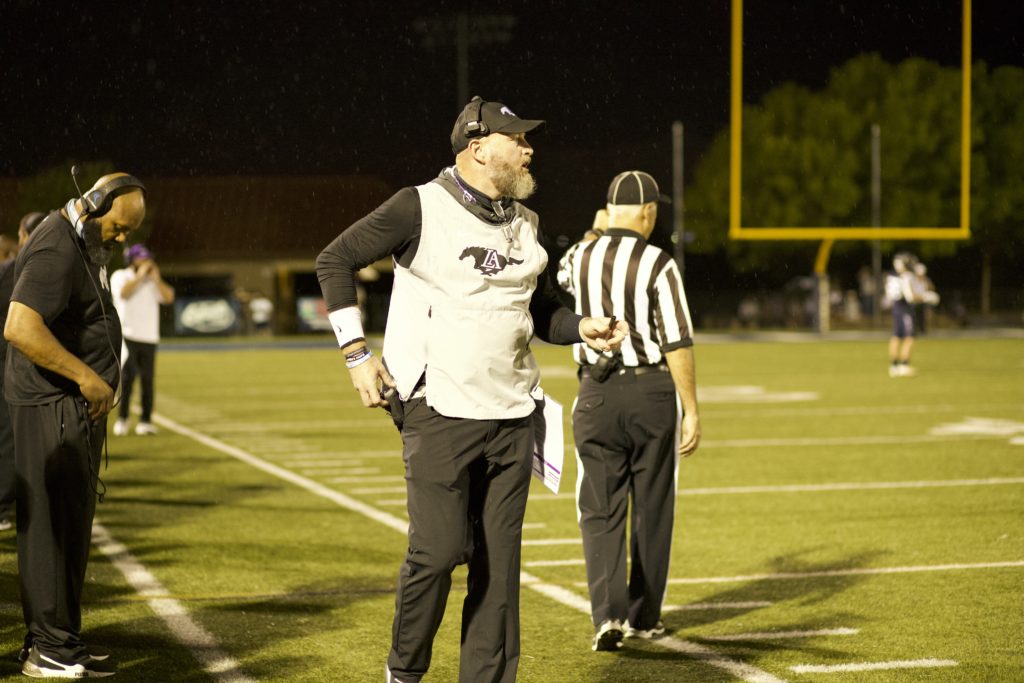
This idea of my pain being repurposed, and the passion, it hit me in an interview. I had never written it down. I had never thought about it that way. I was being asked a question, and it literally was like the Lord gave me the words, as I’m in this interview, it was in the context of, This is crazy. Why are you doing this? Because this really made no sense.
If you really want to drill deep into why I’m here [in Nashville, coaching high school football], you really can’t find sense to it. It was a calling. I’ll never forget.
It is really what started this transition from retiring, which way too early and really just being lazy. I was sitting in a church in Austin, Texas, in October, and I don’t remember what the pastor was preaching on. I just remember he was talking about all the missed opportunities when you say ‘no’ to God. And I don’t like a mental Rolodex of all the things I had said ‘no’ to, that I chased ambition and fame and financial success and all the things of the world.
And that said no to so many opportunities that He had presented from the time I was done playing, that seemed either too hard, too overwhelming, or not in my skill set. I made every excuse there was, and I just kind of stayed there in the quiet after service and just said, “Lord, I’m done saying no. I’m not fulfilled right now. I have everything any man could want. And I feel a little empty, and it must be because I’ve said no to too many things. So whatever you say, whatever you tell me to do next, I’m in.”
But I was scared to death to be called that way. But I said, “Hey, we’re going whatever it is, like, be ready to pack up and go.” And really the next few months, just things stirred in me. I didn’t feel really called, even. My mind was way more open to stuff. And then sure enough, knucklehead Trent, I get this call [from Lipscomb Academy]. The first thing I think is ‘no’. And then I’m on campus. The first thing I’m thinking is no. And I’m asked to take the job and the first thing I say is no. And then I’m on a plane leaving here after being offered this opportunity. And I go, Oh my gosh, I just said no to a bunch of things I said I was never saying no to again.
And I got back home and I got with Cass and [my daughter] Delaney over a course of a few days, and said [to myself], There’s no way they’re going to release me. So they’re gonna be the ‘no’. So I said, “Okay, God, I got an out here. I’m not going to have to do this. Okay, I’m in. Yes, I’ll do it. But they’re not going to say yes. There’s no way they’re saying yes.”
And I mean, both of them said, “No, we’re doing this.”
I said, “Well, wait a second. You really know what you’re asking for?”
They’re like, “We’re doing this.”
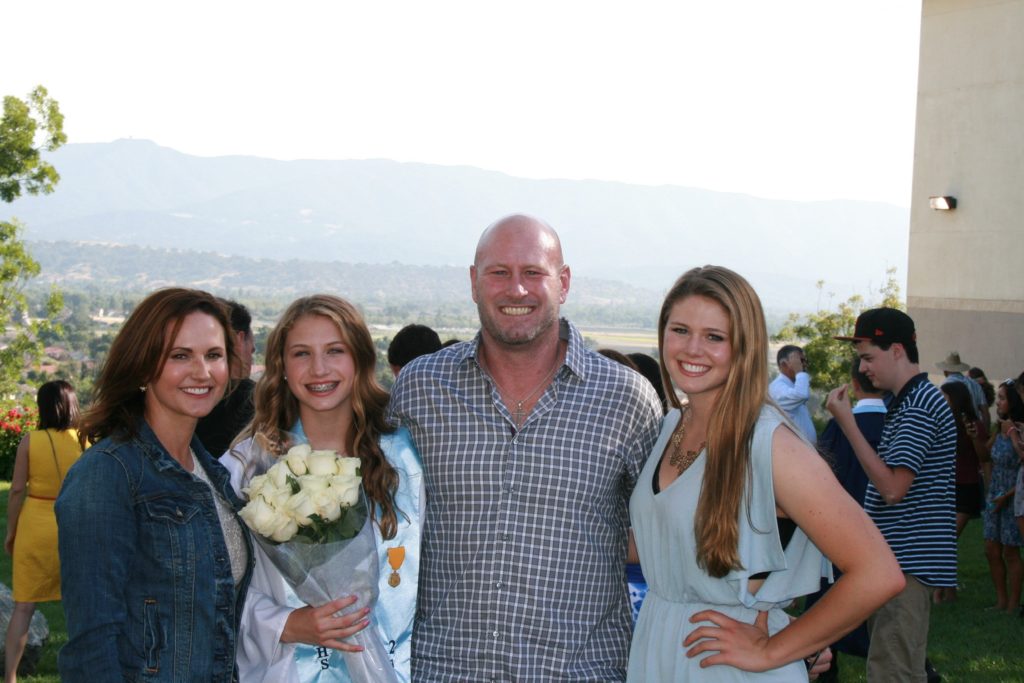
I think coming to Nashville and being around these boys opened up some wounds in a healthy way. And I had noticed that all this pain that was resurfacing, like I hadn’t dealt with some Trevin stuff in a couple of years, really. And every day I was being confronted with these kids, looking at their faces, like, Oh my gosh, that’s Trevin. And it hurts.
And what I was seeing, though, in my life was that it was cool as these wounds were being opened, as I was dealing with some of this pain, again, it was bringing out a passion in me that I hadn’t had in years—maybe more than I had ever had. That passion surfaced as thought leadership, has surfaced as capacity, has surfaced as energy, has surfaced as compassion. Some would tell you I wasn’t the most compassionate person at times of my life. And all of a sudden, I had this compassion I hadn’t had before, a sensitivity. I was relationally more engaged. I was connecting better with people. And it hit me in this one interview, This is this pain that I’m open to again. And it’s being repurposed into a really cool passion.
“As these wounds were being opened, as I was dealing with some of this pain, again, it was bringing out a passion in me that I hadn’t had in years—maybe more than I had ever had. That passion surfaced as thought leadership, has surfaced as capacity, has surfaced as energy, has surfaced as compassion.” – Trent Dilfer, on coaching high school football
Talking about honoring Trevin’s memory, obviously what I’m doing here at Lipscomb Academy, I’ve been given this opportunity to coach/parent a bunch of boys. I see some of these parents and them with their sons. And I don’t envy them. It’s not envy. It’s, “I hope you appreciate how awesome this is. I hope you can appreciate this experience you’re going to have with your boy as he goes through these teenage years. And I want to make it better for you. I want to make it richer for you.” And a lot of what we’re doing here is to enhance that experience with these boys and their parents. And I feel that this part of the calling is one day, I hope they come back and say, “Well, that was one of the greatest experiences of my life. And not just the football, but this connection I had with my son and the environment that you built, you know, helped facilitate that.”
Sometimes we stay in our pain because we think that’s where we should live. And we’d feel guilty if that pain turns into something positive. And I would just tell you from a life experience that that pain repurposed into passion is an incredible, redemptive quality that only the Lord Jesus Christ can provide.
“Sometimes we stay in our pain because we think that’s where we should live. And we’d feel guilty if that pain turns into something positive. I would just tell you from life experience that that pain repurposed into passion is an incredible, redemptive quality that only the Lord Jesus Christ can provide.” – Trent Dilfer
Narrator: To keep up with Trent, follow him on social media.
If you’d like to hear more stories about the power of creating deep connections with others, check out our interview with author Ron Hall.
Next time on the Jesus Calling Podcast, we speak with Academy Award-winning actor Matthew McConaughey, who’s recently written a new book called Greenlights, a memoir of his life pulled from 35 years of journaling. Matthew shares what he believes having an attitude of gratefulness brings to our lives.
Matthew McConaughey: I think everyone has an innate quest to be a little better, be a little more true to themselves. The more we’re thankful for, the more we will create in our lives to be thankful for—I do believe that’s a fact.


